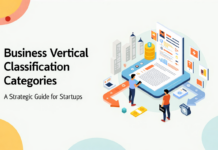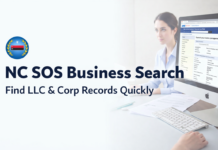When business systems operate in silos, productivity slows, errors increase, and decision-making suffers. NetSuite integration services solve this fragmentation by creating a seamless digital ecosystem across core business functions finance, inventory, CRM, eCommerce, and more. For enterprise-level organizations striving to scale efficiently, these integrations are no longer optional they’re a strategic imperative.
This comprehensive blog explores how NetSuite integration enhances operational efficiency, highlights integration challenges, and explains best practices for successful implementation. With support from expert partners like SoftArt, businesses can unlock true ERP value while receiving ongoing NetSuite support tailored to their specific needs.
Table of contents
- Why Integration Matters for ERP Success?
- Core Benefits of NetSuite Integration Services:
- Real-World Use Cases for NetSuite Integration:
- Overcoming Common Integration Challenges:
- Best Practices for NetSuite Integration Services
- Role of SoftArt in NetSuite Integration Excellence:
- Building Resilient, Agile Operations
- Future-Proofing Your ERP Ecosystem:
- Final Thoughts!
Why Integration Matters for ERP Success?
Enterprise Resource Planning (ERP) systems like NetSuite centralize key business processes from finance and inventory to order management and CRM. However, without efficient integration with other business-critical systems, the full value of ERP remains untapped. Integration not only ensures real-time data synchronization but also minimizes manual errors, improves operational transparency, and accelerates business cycles.
Core Benefits of NetSuite Integration Services:
- Unified Data Ecosystem: Ensuring a continues communication with different systems.
- Reduced Manual Workload: Saves time on duplicate data entry and field updates.
- Improved Decision-Making: Access to results and data in real time.
- Enhanced Customer Experience: Simplifies ordering, billing, and help desk operations.
- Scalability: Seamlessly brings in new systems as your business expands
Real-World Use Cases for NetSuite Integration:
To better understand the strategic advantage of NetSuite integration, here are some key use cases:
1. CRM Integration (e.g., Salesforce):
By synchronizing customer information across Salesforce and NetSuite, sales and finance teams rely on one version of the truth. This eliminates miscommunication and creates a single source of truth from lead to revenue.
2. E-commerce Platform Integration (e.g., Shopify, Magento):
When using NetSuite’s online store connectors, inventory, price and order information are automatically updated in real-time without the need to manually input.
3. Legacy System Integration:
Most large companies continue to use custom or older systems for some business purposes. NetSuite integration service connects these solutions and integrate them in one IT infrastructure.
4. Third-Party Logistics (3PL) Integration:
Connecting NetSuite to your logistics providers streamlines shipping, order tracking, and inventory management.
5. Business Intelligence Integration:
For businesses seeking deeper insights, integrating NetSuite with BI tools like Tableau or Power BI facilitates data visualization, KPI tracking, and data-driven strategy development.
6. Payment Gateway Integration:
Seamless integration with payment processors ensures faster reconciliations, streamlined invoicing, and better cash flow management.
Overcoming Common Integration Challenges:
While NetSuite is designed to be integration-friendly, complex enterprise environments often present unique hurdles. Key challenges include:
- Data Mapping Complexities: Mapping fields between disparate systems can be difficult.
- API Limitations: Understanding and utilizing NetSuite’s SuiteTalk and RESTlet APIs require specialized expertise.
- Security & Compliance: Ensuring data protection across platforms is critical.
- Downtime Risks: Poorly planned integrations can lead to operational disruptions.
These challenges make a strong case for partnering with experienced NetSuite professionals.
Best Practices for NetSuite Integration Services
1. Conduct a Comprehensive Needs Assessment:
Know your existing architecture, business flows, and data needs. Clarify your integration goals.
2. Use Pre-Built Connectors Where Possible:
Leverage certified connectors if available to accelerate integration and minimize custom development timelines.
3. Prioritize Data Governance:
Maintain data integrity, data security, and data consistency across all systems. Set up auditing and access controls for the data.
4. Phase Your Rollout:
Begin with the action points that will have the greatest impact and build from there. This lowers the risk and makes it easier for adoption to happen.
5. Invest in Ongoing NetSuite Support:
Integration doesn’t stop when you deploy. Ongoing NetSuite support helps you keep up with updates, solve problems and scale your integrations as your business grows.
Role of SoftArt in NetSuite Integration Excellence:
SoftArt has a long-standing experience in dealing with integration and transformation of ERP in operational contexts. And, as a proven ally, the group lends a hand in aiding businesses with their most intricate NetSuite integrations, ensuring that the systems are not only well deployed, but well supported long-term. Whatever changes are required for your API, middleware or third-party tools, SoftArt is there to ensure the end result is secure and scalable.
Building Resilient, Agile Operations
Ensuring Flexibility with Modular Integration:
A modular integration strategy enables organizations to adopt NetSuite in sections without replacing their entire tech stack and everything they’re accustomed to in one fell swoop. This nimbleness allows for strategic pivots, M&A action, and aggressive scaling.
Automating Complex Workflows:
Automatic purchase orders, multi-location inventory syncing From automated purchase orders to multi-location inventory syncing, integrating NetSuite with other business systems results in smarter, faster processes. Full lifecycles from supplier to customer can be followed by companies with little manual labour involved.
Industry-Specific Adaptability:
Manufacturing, retail, and services all have different integration requirements. Customised NetSuite Integration Services Tailored workflows, industry-specific KPIs and compliant ready operations.
Future-Proofing Your ERP Ecosystem:
As your business grows, so will your tech stack. NetSuite’s flexibility, when paired with robust integration services, allows you to evolve without reengineering your entire infrastructure. By anticipating future needs and leveraging the right integration strategies, enterprises can stay agile, competitive, and prepared for tomorrow’s challenges.
Key Future-Ready Strategies:
- Cloud-Native Connectors: To that end, use iPaaS tools such as Dell Boomi or Celigo to future-proof your ecosystem. Specifically, these platforms provide low-code environments and pre-built connectors that accelerate deployment and reduce maintenance overhead.
- AI & Analytics Integration: Harness machine learning by integrating advanced analytics platforms with NetSuite for predictive insights, anomaly detection, and strategic forecasting.
- Global Expansion Support: Moreover, integrate localization modules and currency converters to handle multi-currency, multi-language, and region-specific tax compliance for seamless international operations.
- IoT and Edge Device Compatibility: For businesses in logistics, field services, or smart manufacturing, integrating IoT sensor data with NetSuite enhances visibility and enables real-time, data-driven decisions on the edge.
- Blockchain Integration for Supply Chain: As supply chains become more complex, blockchain-enabled NetSuite integration enhances traceability, reduces fraud risk, and strengthens supplier accountability with immutable records.
- Sustainability & ESG Compliance Integrations: As a result of the growing emphasis on corporate responsibility, integrating ESG-focused tools into NetSuite allows businesses to track environmental impact, measure energy usage, and maintain ethical sourcing standards. In addition, real-time dashboards and automated reporting enable organizations to meet global sustainability benchmarks, improve transparency, and ultimately demonstrate long-term value to stakeholders.
Final Thoughts!
Ultimately, enterprise success hinges on operational agility, and in this context, NetSuite integration services provide the foundation to achieve just that. By centralizing data, automating workflows, and eliminating inefficiencies, businesses are therefore better equipped to innovate, scale, and compete.
With the right strategy and expert guidance including reliable NetSuite support your ERP investment can become a powerful driver of growth. Integration is not just a technical task; it’s a strategic business enabler.
If your organization is considering a NetSuite transformation or facing integration roadblocks, investing in a planned approach with a trusted partner like SoftArt can be the difference between average outcomes and continuous business excellence.










